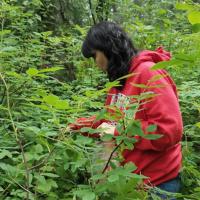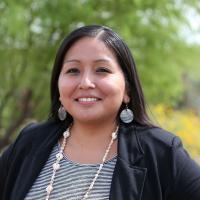In 2020, the Indigenous Foods Knowledges Network (IFKN) initiated a comparative study of COVID-19 impacts on Indigenous food access, security, and sovereignty in Alaska and the Southwest U.S. This project aims to understand the impact of COVID-19 on Indigenous food security and food systems, with a focus on identifying innovations that have supported access to food, including Indigenous foods, since the start of the pandemic.
This project employs a community-driven methodology involving Indigenous research partners from Alaska and the U.S. Southwest. A research advisory committee (RAC) comprised of members of the existing Indigenous Foods Knowledges Network (IFKN) is guiding project design, implementation, and dissemination of results. Information is being collected through remotely conducted interviews with around 35 subject matter experts from the Arctic and Southwest. Thematic coding and analysis will allow us to identify commonalities and differences between communities and across the two regions. Participants will have the chance to review and contribute to the analysis. This project will provide a baseline assessment of the impact of COVID-19 on subsistence practices, traditional food knowledge, and food access. Improved understanding of the obstacles to food security and the resiliencies in Indigenous foodways will enable both communities and policy makers to plan proactively for future adverse events.
The project is funded by the NSF Office of Polar Programs (Arctic Social Sciences) program under a collaborative Rapid Response Research (RAPID) award (award numbers 2035161, led by Dr. Stephanie Russo Carroll, and 2035233, led by Dr. Noor Johnson).









